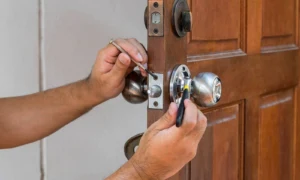Waste disposal can often seem daunting, but straightforward solutions exist to make this process manageable. One such solution is to hire a skip. A skip, typically rented from waste management companies, provides ample, accessible space to dispose of domestic and industrial waste.
It streamlines the waste collection and disposal process, making it efficient, cost-effective, and environmentally friendly. This convenient and versatile method encourages responsible waste management practices.
Composting:
Composting is a natural process that converts organic material, like vegetable scraps and leaves, into a nutrient-rich soil conditioner. It’s a simple yet powerful way to reduce household waste by up to 30%, diverting it from landfills. Composting enriches garden soil, promotes plant growth, and reduces the need for chemical fertilizers.
Furthermore, it helps combat climate change by reducing methane emissions from landfills. Thus, composting presents an eco-friendly solution to waste disposal.
Recycling:
Recycling involves converting waste materials into reusable products to prevent the waste of potentially valuable resources. It minimizes the consumption of fresh raw materials, energy usage, water pollution, and greenhouse gas emissions.
Numerous items can be processed into new products, from paper to plastic, glass, metal, and electronics. Regular recycling contributes significantly to waste reduction and is crucial to sustainable waste management strategies to protect our environment.
Reusing Items:
Reusing items is a practical way to minimize waste and lower our environmental impact. It involves finding new uses for items that might otherwise be discarded. For instance, glass jars can be repurposed as storage containers, old T-shirts can be transformed into rags, and shopping bags can be reused for future trips.
Reuse extends the life of products, reduces the demand for new ones, and reduces the resources required for production and disposal, making it a practical component of sustainable living.
Reducing Consumption:
Reducing consumption means consciously minimizing waste by using and buying less. It’s the first step in the “reduce, reuse, recycle” hierarchy. This can involve buying in bulk to reduce packaging, choosing products with less plastic, and avoiding unnecessary purchases.
Reducing our consumption can lessen the demand for new products, decreasing the resources used and waste produced. It’s an effective strategy for personal environmental responsibility and sustainable living.

Proper Disposal of Hazardous Waste:
Proper disposal of hazardous waste is crucial for the environment and public health. Hazardous waste, including batteries, paint, and certain cleaning products, should not be disposed of in regular trash bins. Instead, these materials should be taken to designated disposal facilities or drop-off events that handle hazardous waste.
This ensures that harmful substances don’t end up in landfills, where they could potentially contaminate soil and groundwater, thereby protecting our ecosystems and communities.
Local Waste Disposal Programs:
Local waste disposal programs play a critical role in sustainable waste management. They provide accessible and often community-specific solutions for waste disposal, including recycling, composting, and hazardous waste collection.
These programs educate residents about proper waste sorting and disposal, help reduce the amount of waste going to landfills, and promote environmentally friendly practices. Participation in these programs is a practical way individuals can contribute to waste reduction and environmental preservation in their local communities.
Educating Others:
Educating others about responsible waste management is a pivotal step toward a more sustainable future. It fosters awareness about the environmental impact of waste and encourages more eco-friendly habits.
- Workshops and Seminars: Organizing workshops or seminars on waste management practices is an effective way to impart knowledge. These could be held in schools, offices, community centers, or public spaces.
- Social Media Campaigns: In the digital age, social media is a powerful tool for advocacy. Sharing information on waste disposal, recycling practices, and composting can reach a broad audience and influence online behavior.
- Community Clean-Up Drives: Such initiatives not only directly tackle waste issues but also provide a practical, hands-on learning experience about the importance of cleanliness and proper waste disposal.
- School Education Programs: Incorporating waste management education into school curriculums can instill good habits in children from a young age.
- Informative Brochures and Posters: These can be distributed in community spaces or sent via mail. They should contain clear, simple instructions on waste segregation and disposal.
- Hosting Webinars or Podcasts: These digital platforms can reach a global audience and host expert speakers to discuss waste management solutions.
Final Words
Managing waste effectively is crucial for our environment, health, and future generations. Techniques like composting, recycling, reusing, and reducing consumption, among others, can significantly lessen our environmental footprint.
More localized approaches, such as participating in local waste disposal programs and educating others, further enhance these efforts. For large-scale disposal, services like Hire A Skip, offer a convenient, cost-effective solution, reinforcing that waste management can be simplified without compromising efficacy or environmental responsibility.
Also, read this: Why Watching Movies is the Best Hobby on Weekends?






































